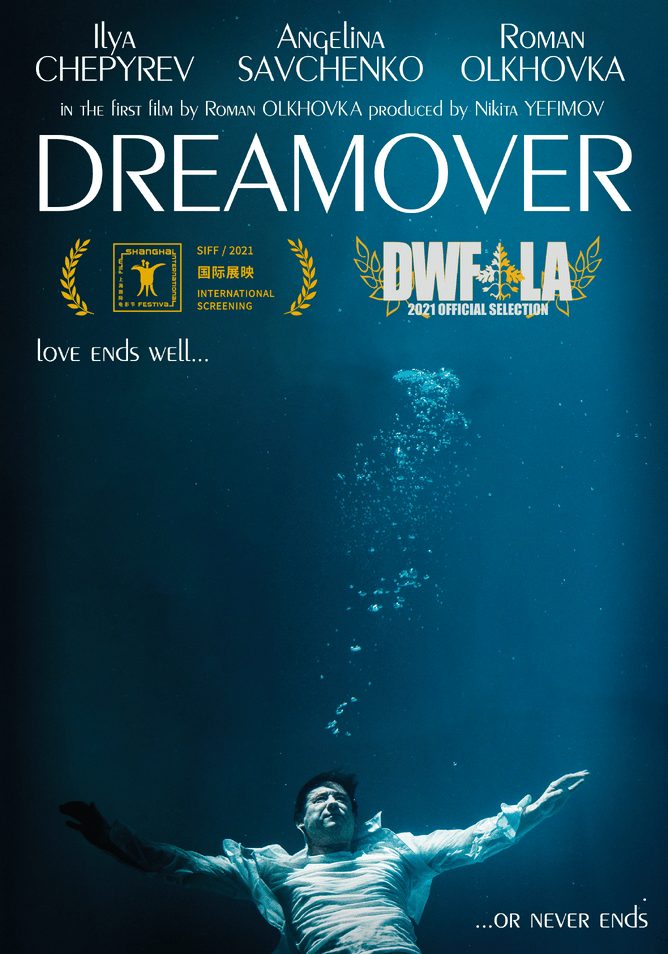DREAMOVER begins with the lonely vision of a man in a dull, quotidian existence who struggles to sleep deeply after a repetitive, bleak workday.
DREAMOVER begins with the lonely vision of a man in a dull, quotidian existence who struggles to sleep deeply after a repetitive, bleak workday.
To treat his insomnia, he turns to a researcher—after finding a card on the subway—who is experimenting with an ingenious method of sleep correction, arguing scientifically that love creates the strongest memories and accessing them helps create serenity. After employing a modicum of technology, Demian finds himself sleeping comfortably and having vivid, beautiful memories of his younger days, particularly with Masha, the lost love of his life, played by Angelina Savchenko. But these memories are dashed by heartbreak and remorse, leaving him lonelier than before and energized to explore another timeline.
As he changes his memories, he finds they may also change his current life and future, as one dream and one memory collide with unintended consequences. Now, just forget you read all that.
A story told “by five film enthusiasts,” according to Olkhovka, the performances are natural and unaffected, real and engaging. Even in a dream world sometimes viewed through a gauzy, translucent lens, with the cool colors of Mother Russia, Olkhovka takes the audience through the four seasons in modern Moscow—a city he clearly loves—along with excursions to some of its bleak hinterlands. This thoroughly Russian film is a futuristic manifestation of the country’s rich, enduring and revered storytelling themes and traditions: deep-thinking characters, sweeping scope, crushing dullness amidst beauty, lost unrequited love, long threads of friendship, and an Easter egg that sharp-eyed viewers will notice.
DREAMOVER propels the characters and the audience across a fantastic alternate timeline, one where things might just be able to work out differently.



